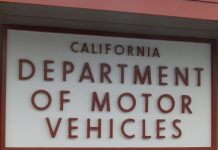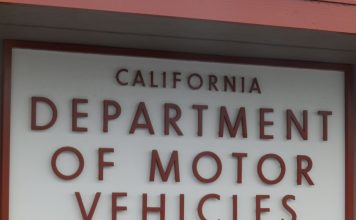GILROY
– City planning staff confirmed Tuesday that Wal-Mart
Supercenter’s violation of Bay Area air quality standards is
something that would be caused by any new business building in
Gilroy.
GILROY – City planning staff confirmed Tuesday that Wal-Mart Supercenter’s violation of Bay Area air quality standards is something that would be caused by any new business building in Gilroy.
Because Gilroy’s air quality already exceeds thresholds set by the Bay Area Air Quality Management District, any new business in Gilroy – including something as small scale as a new florist shop – would pollute the air beyond an acceptable limit.
“Council already decided this can’t be mitigated at the individual project level (for businesses in the Pacheco Pass Center and Gilroy Crossings retail complexes),” city planner Melissa Durkin said.
This fact could play favorably on the minds of City Council as it moves closer to approving the retail giant’s proposal to relocate. Within an environmental impact report on the Wal-Mart Supercenter, scientists say the project’s impact on air quality cannot be made less severe.
With nearly 1,000 parking spaces and daily product deliveries from large diesel trucks, Wal-Mart Supercenter will pollute the air with nitrous oxide and other emissions by nearly 100 pounds per day.
“We can ask Wal-Mart to establish carpools and install parking spaces to charge electric cars, but the most effective way to mitigate this is to do so at the General Plan level by creating neighborhood districts where people rely less on their car to get around,” Durkin said.
The Wal-Mart Supercenter is proposed for the Pacheco Pass Center on the east side of town off Highway 152 and U.S. 101. If Council approves the controversial project, it would sign a so-called statement of overriding considerations – a document that says it’s OK to exceed certain environmental thresholds.
“Many, many times the Council has done this, and it’s not always for air quality issues,” Durkin said.
Council approved the Gilroy Premium Outlets, Durkin said, by passing a statement of overriding considerations over traffic impacts.
Although environmental impacts from a Supercenter don’t appear severe enough to derail the project, many residents and labor union interests argued the impacts could be. At a public hearing Tuesday night, anti-Wal-Mart activists said the Supercenter’s potential economic impact on competing businesses equals an environmental impact.
Economic impacts fall under the state’s environmental laws, if it can be proven they will cause physical deterioration of structures and blight. This makes the findings within any economic impact report all the more valuable to the anti-Wal-Mart crusade.
Wal-Mart opponents have been pushing for an independent economic impact report to be done on the Supercenter project. Three exist, but one is partially funded by unions, another is entirely funded by Wal-Mart and a third one by the city is 12 years old, done long before the Supercenter proposal.
“We need a new study based on the current and proposed uses,” said resident Connie Rogers, who lost an effort to get last year’s City Council to authorize a new economic impact report. “Now we have a new Council and new information. There is no need to perpetuate the legacy of our previous mayor and his big-box-is-better philosophy.”
Anti-Wal-Mart speakers Tuesday predicted the downfall of PW Marketplace, Rite Aid and all the businesses which share that east side strip mall.













